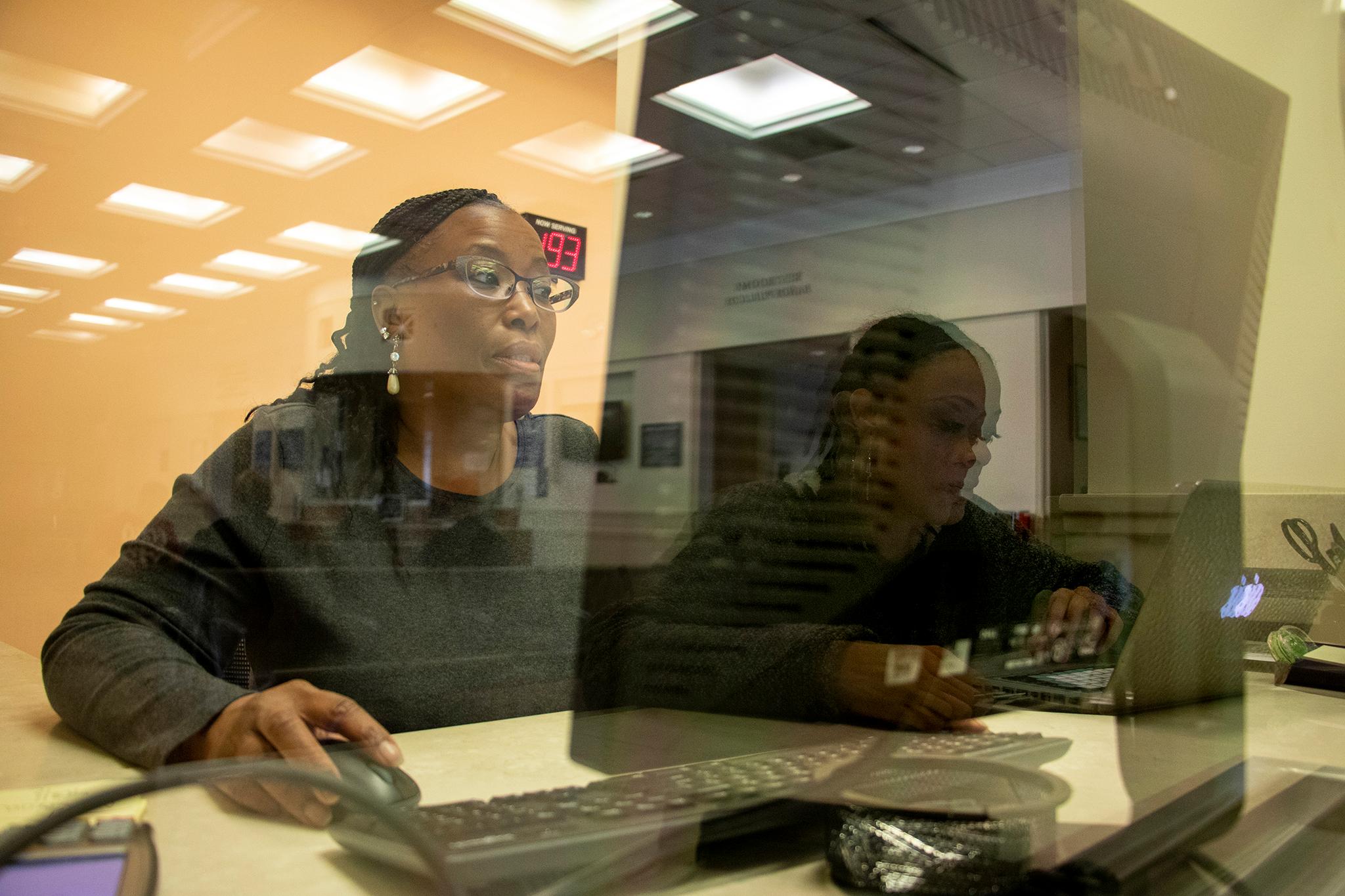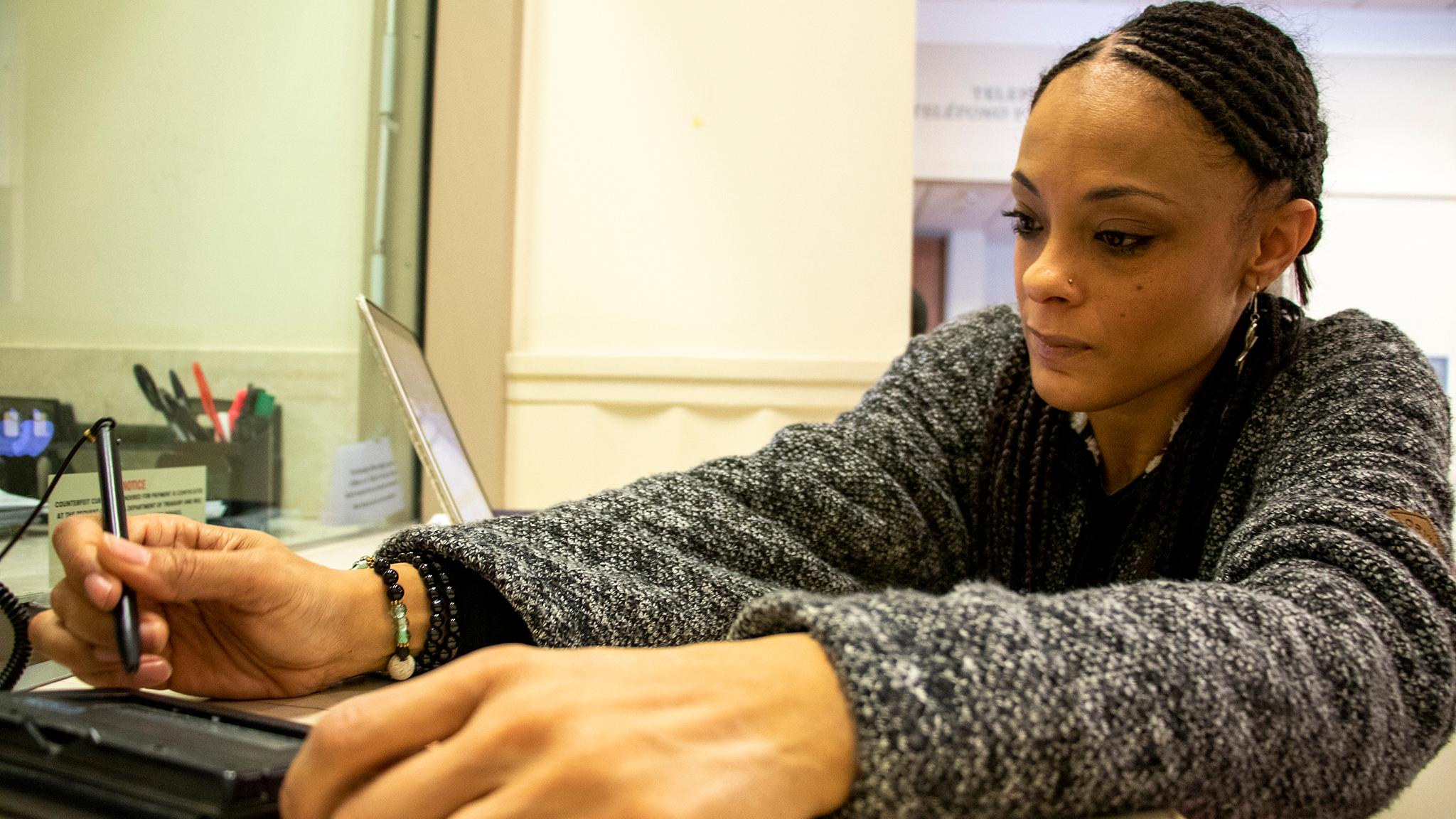When Elisabeth Epps went to jail two weeks ago, it was clear the cash bail reformer was as motivated as ever to continue her work. But it wasn't until a few days later that she realized she'd have a new slate of items on her reform checklist by the time she was released Thursday morning.
The topic: resources for women in jail. The case in point: she couldn't get a tampon in her cell at Arapahoe County Jail, and she needed it.
Epps was in and out of jail on work release, which allowed her to tweet:
The problem was tied up in Arapahoe County procedure. Epps was not allowed to bring her own products in, and the commissary ordering and delivery schedule meant she'd have to wait 9 days to get them that way. Epps said she was told she "wasn't indigent enough" to get free pads, so she was out of luck.
"The jails are still really behind on their policy," State Rep. Leslie Herod told Denverite. Feminine products: "People say they're a luxury good."
In 2017, Herod and then-Representative Faith Winter amended the state budget to require state prisons to make these products available to all inmates. This year, she said she and Winter, now a state Senator, are looking at ways to do the same for local jails. It's a different kind of challenge, since city and county jails are not controlled by a central budget.
Epps' experience played a role in Herod's attention on the issue.
"Firsthand experience is really important," she sad. "That's exactly what should inform policy."
Epps, who has spent countless hours posting bonds for low-level offenders, said she didn't realize this was even an issue until she was herself incarcerated.
"I'm embarrassed that I didn't know," she said, although the tampon issue wasn't her biggest concern.
More upsetting was simply navigating the jail. Three holding areas for low-level male offenders stood between the jail entrance and her pod. Those inmates are allowed to wander though the hallways, so women in Epps' pod need to pass through the crowd if they're leaving for work or heading to get medication.
"It feels like running the gauntlet," Epps said. "Twice, I skipped my med time because I wasn't up for it."

Christie Donner, executive director of the Colorado Criminal Justice Reform Coalition, views this conversation through a particular lens. Nationwide and in Colorado, populations of women in prisons are growing faster than populations of men. In the 2017 fiscal year, she said, the number of women in Colorado's prisons - not county or city jails - increased 29 percent from 2016, where the population of men only increased 9 percent. Last year, the number of women in state prisons increased 11 percent as compared to 8 percent for men.
"It's a long term trend, it's a national trend and it's a completely confounding trend to me," she said.
It's especially concerning, she added, since sentencing reform measures for drug and theft charges were recommended to the state in 2013.
"The overwhelming majority of women go to prison on nonviolent offenses," she said. "Despite those two reforms, we saw an incredible increase."
Since there is no centralized data for jails in the state, Donner's Coalition only looks at numbers related to felony prison time.
But Donner made sure to point out that, while access to tampons or pads is a worthwhile cause, she is much more focused on mental health and addiction care that would prevent women from entering prison and jails in the first place. She cited statistics that show 90 percent of women in prison "were assessed to be in moderate to severe need for substance abuse treatment" and 76 percent were in need of mental health treatment - those groups overlap.
Colorado legislators are looking for fixes into these issues. Herod, who led a Denver ballot measure for mental health funding last year, said its a priority for her and her colleagues this session.
But, on top of care issues, Donner added that many women in prison are also single moms.
"What happens to kids when a single mom goes to prison?" she asked. "That's the travesty."
Correction: Due to a reporting error, this story initially stated Epps was not able to get tampons from the jail commissary due to a delay in funds. It was corrected to say it was an ordering and delivery scheduling issue.













